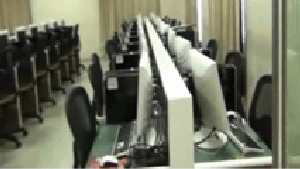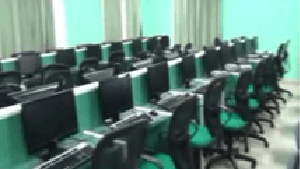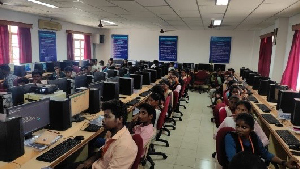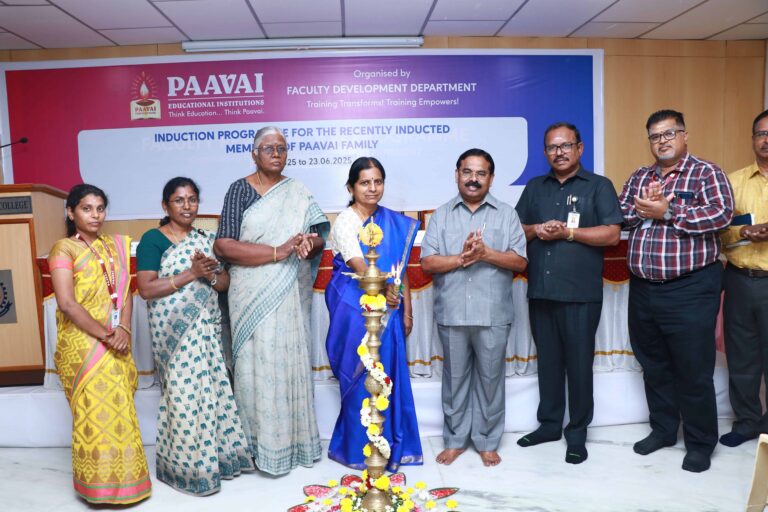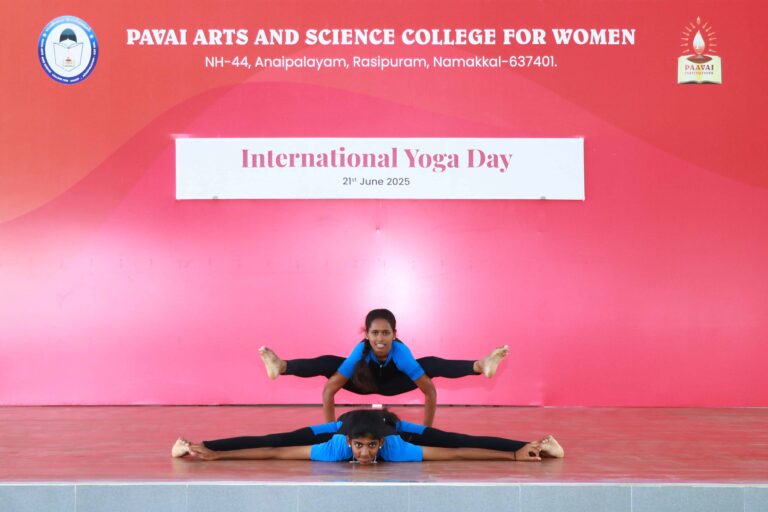-
About the Department
-
Vision and Mission
-
PEO, PO and PSO
-
Head of the Department
-
Faculty Information
-
Laboratory Facility
-
Department Library
-
Value Added Courses
About the Department
The Department of IoT at Paavai Engineering College is a leading educational institution that focuses on the study, research, and application of the Internet of Things. Our department offers comprehensive programs and resources to equip students with the knowledge and skills required to excel in this rapidly evolving field. With a team of experienced faculty, state-of-the-art facilities, and industry partnerships, we strive to provide a stimulating and nurturing environment for students to explore the potential of IoT and contribute to its advancements.
The Department of IoT is committed to fostering research and innovation in the field of IoT. Our faculty members are actively engaged in research projects and collaborate with industry partners to address real-world challenges. Areas of research focus include smart cities, industrial IoT, healthcare applications, agriculture automation, and energy management. Students have the opportunity to participate in research initiatives and work alongside faculty members, gaining valuable experience in solving complex problems.
We provide state-of-the-art facilities and infrastructure to support the learning and research needs of our students. Our IoT lab is equipped with the latest hardware and software tools, including development boards, sensors, actuators, and IoT platforms. Students have access to high-speed internet, cloud computing resources, and simulation software for prototyping and testing IoT applications. Additionally, we have dedicated spaces for project development, seminars, and collaborative work.
The Department of IoT maintains strong ties with industry leaders, startups, and research organizations in the IoT domain. These collaborations enable students to engage in industry-relevant projects, internships, and networking opportunities. We regularly organize guest lectures, workshops, and hackathons in partnership with industry experts, allowing students to gain insights into emerging trends and technologies.
Vision and Mission
Vision
To provide quality technical education and prepare the students to become sustainable well qualified Engineers competent to face global challenges and to serve the society by acquiring adequate professional knowledge and skills by training.
Mission
- Quality Education: To produce innovative, competent and goal-oriented computer science engineers through cutting-edge technology and educational experience.
- Technology Updation: To enrich the knowledge of students by imparting state-of- the- art technology so that they will satisfactorily serve the society.
- Employability: To improve the employability of students through Industry-Institution relationship and make them industry ready.
- Research & Development: To widen the knowledge of the faculty members continuously through research and development initiatives.
PEO, PO & PSO
Programme Educational Objectives (PEOs) | ||
PEO1 | Global reputation | To create value added, disciplined, high profile Computer Science and Engineering professionals for successful careers in their related Industry that makes them globally reputed. |
PEO2 | Fundamental Knowledge | To develop the students with a sound foundation in mathematical, scientific and engineering fundamentals necessary to synthesize the technical core concepts focusing on skill development and knowledge up gradation which will lead to technical innovations. |
PEO3 | Continuous learning | To practice and demonstrate the ability to use the domain knowledge and expertise through periodic assignments performances and projects to continuously prove the functionality of computer science and engineering learning in social and environmental aspects and to make allowances for further improvements. |
Programme Outcomes (pos) Engineering Graduates will be able to: |
|
|
PO1 |
Engineering knowledge: Apply the knowledge of mathematics, science, engineering fundamentals, and an engineering specialization to the solution of complex engineering problems. |
|
PO2 |
Problem analysis: Identify, formulate, review research literature, and analyse complex engineering problems reaching substantiated conclusions using first principles of mathematics, natural sciences, and engineering sciences. |
|
PO3 |
Design/development of solutions: Design solutions for complex engineering problems and design system components or processes that meet the specified needs with appropriate consideration for the public health and safety, and the cultural, societal, and environmental considerations. |
|
PO4 |
Conduct investigations of complex problems: Use research-based knowledge and research methods including design of experiments, analysis and interpretation of data, and synthesis of the information to provide valid conclusions. |
|
PO5 |
Modern tool usage: Create, select, and apply appropriate techniques, resources, and modern engineering and IT tools including prediction and modelling to complex engineering activities with an understanding of the limitations. |
|
PO6 |
The engineer and society: Apply reasoning informed by the contextual knowledge to assess societal, health, safety, legal and cultural issues and the consequent responsibilities relevant to the professional engineering practice. |
|
PO7 |
Environment and sustainability: Understand the impact of the professional engineering solutions in societal and environmental contexts, and demonstrate the knowledge and need for sustainable development. |
|
PO8 |
Ethics: Apply ethical principles and commit to professional ethics and responsibilities and norms of the engineering practice. |
|
PO9 |
Individual and team work: Function effectively as an individual, and as a member or leader in diverse teams, and in multidisciplinary settings. |
|
P10 |
Communication: Communicate effectively on complex engineering activities with the engineering community and with society at large, such as, being able to comprehend and write effective reports and design documentation, make effective presentations, and give and receive clear instructions. |
|
P11 |
Project management and finance: Demonstrate knowledge and understanding of the engineering and management principles and apply these to one’s own work, as a member and leader in a team, to manage projects and in multi disciplinary environments. |
|
P12 |
Life-long learning: Recognize the need for, and have the preparation and ability to engage in independent and life-long learning in the broadest context of technological change. |
Programme Specific Outcomes (PSOs) | |
PSO1 | Foundation of Computer System and Software development: Ability to understand the principles and working of computer systems for the development of software solutions. |
PSO2 | Applications of Computing and Research Ability: Ability to use knowledge in various domains to identify research gaps and hence to provide solution with new ideas and innovations. |
Head of the Department
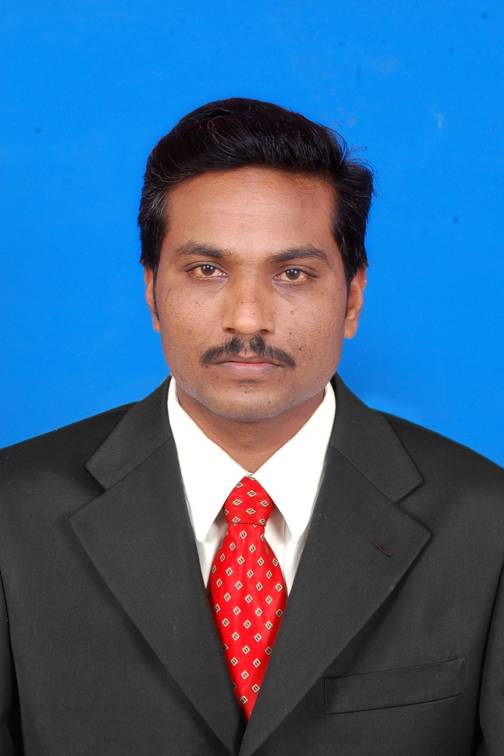
Dr.M.Rameshkumar M.E.,Ph.D.,
HOD,
Department of CSE (IOT)
Dr. M. Rameshkumar is a Professor and Head of the Department of Computer Science and Engineering (IoT) at Paavai Engineering College since 2023. He is an ambitious department member and a supportive person for the academic growth of the students and faculty members. He was awarded a Doctor of Philosophy (Ph.D.) in Computer Science and Engineering at Anna University, Chennai. He took up his academic pursuits with more than 21 years of experience in the field of Teaching & Research and 2 years of experience in industry.
The areas of interest are Networks & Security, Machine learning, Artificial Intelligence, Data science, and the Internet of Things. He acted as a Resource Person for Faculty Development programmes, Seminars, workshops, and Guest Lecture programmes organized by various institutions, and he acted as a Syllabus Committee member for Computer Applications Practical Subject in Diploma Students (DOTE).
He has obtained 4 Patent rights for his Technological Innovations. He participated and presented papers at various International as well as National Conferences and published more than 30 papers in International journals. He received the “Best IT Manager” Award from Republic Achievers Day 2018 at Anna University Campus, Chennai, and the Bharat Gaurav Ratan Award for Best Department Award from the Global Achievers Foundation, New Delhi.
Faculty Information
| S.No | Faculty Name | Designation | Qualification |
| 1 | Dr.M.Ramesh Kumar | Professor & HOD | M.E.,Ph.D., |
| 2 | Dr. A.Manikandan | Professor | M.E.,Ph.D., |
| 3 | Mr.S.Sathish | Assistant Professor | M.E.,(Ph.D) |
| 4 | Dr.R.Sivakumar | Assistant Professor | M.E.,Ph.D |
| 5 | Mr.M.Nijanthan | Assistant Professor | M.E., |
| 6 | Mr.M.Chitrasankar | Assistant Professor | M.E., |
Laboratory Facility
| S.No | Name of The Equipment | Quantity | Configuration | |
| 1 | Computers (Make : WIPRO) | 60 | Model : WIPRO-Evolv-E7600 CPU : Core2 Duo 3.06GHz RAM : 2GB HDD : Sata320 Speed : 3.06 GHz Monitor : 19.5”TFT Keyborad, Optical Mouse | |
| 2 | Computers (Make :HP) | 60 | Model : HP-DC5800-E7500 CPU : Dual Core Duo 3.06GHz RAM : 2GB HDD : Sata250 Speed : 3.06 GHz Monitor : 19.5”TFT Keyborad, Optical Mouse | |
| 2 | Computers (Make :HP) | 60 | Model : HP-DC5800-E7500 CPU : Intel i7 11th Gen 3.06GHz RAM : 8GB SSD : 512 Speed : 3.06 GHz Monitor : HP 21”TFT Keyborad, Optical Mouse | |
| 3 | Printers | 3 | – | |
| 4 | UPS (Compact) | 1 | 10 KVA | |
| 5 | UPS (Compact) | 1 | 5 KVA | |
| 6 | Switch | 3 | Make : D-LINK Rack : 12 U Model : 1400 24(3) Patch Panel : 2 | |
| 7 | Air Conditioner | 4 | LG 2 TON | |
Department Library
| S.No | Particulars | Quantity |
| 1 | No. of Volumes | 6050 |
| 2 | No. of Titles | 1164 |
| 3 | No. of Journals | 24 |
| 4 | No. of e-Books | 450 |
| 5 | No. of System with Internet Facility & IEEE Access | 01 |
Department Library
| S.No | Particulars | Quantity |
| 1 | No. of Volumes | 6050 |
| 2 | No. of Titles | 1164 |
| 3 | No. of Journals | 24 |
| 4 | No. of e-Books | 450 |
| 5 | No. of System with Internet Facility & IEEE Access | 01 |
Value Added Courses
2022-2023 |
|||||
| S.No | Software Course | ||||
| 1 | Machine Learning With Python | ||||
| 2 | Data Analytics With R | ||||
| 3 | SAP | ||||
| 4 | IOS App Development | ||||
| 5 | Amazon Web Services | ||||
| 6 | Android | ||||
Value Added Courses
2022-2023 |
|||||
| S.No | Software Course | ||||
| 1 | Machine Learning With Python | ||||
| 2 | Data Analytics With R | ||||
| 3 | SAP | ||||
| 4 | IOS App Development | ||||
| 5 | Amazon Web Services | ||||
| 6 | Android | ||||

